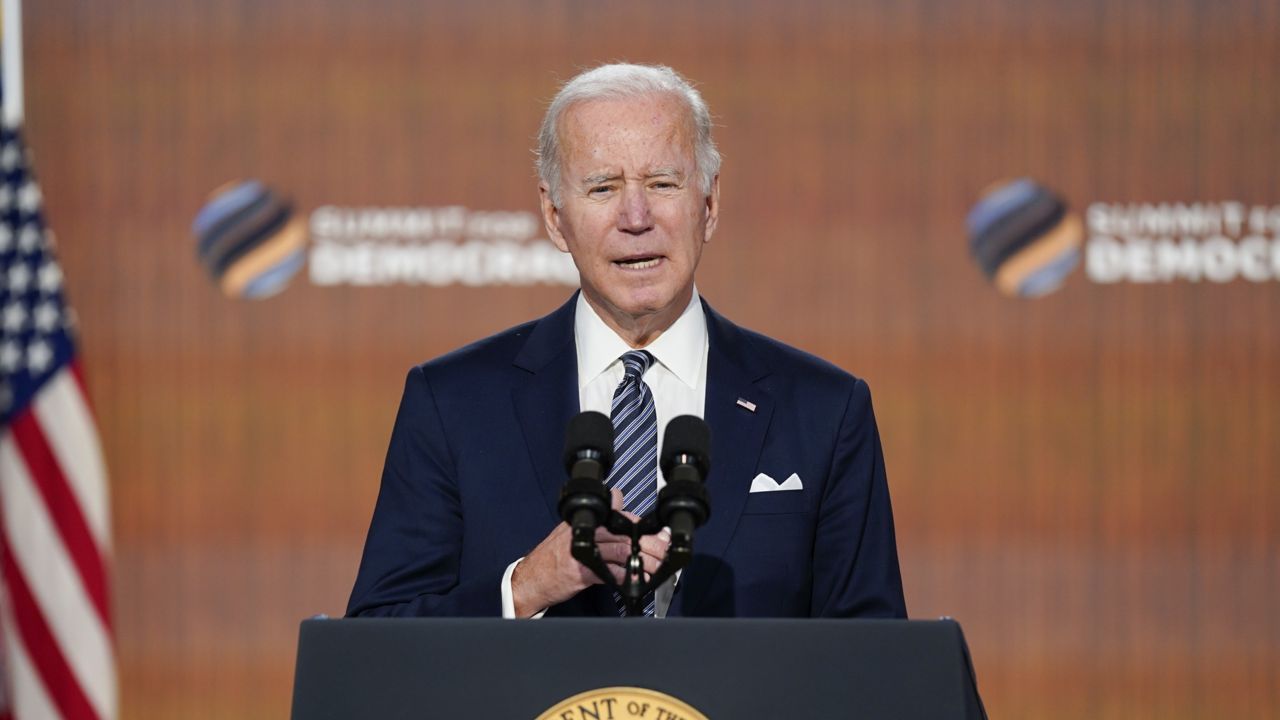President Joe Biden wrapped the first annual Summit for Democracy on Friday by encouraging world leaders to join together in order to stop the spread of autocracy around the world.
“A democratic world is everywhere. Autocracies could never extinguish the embers of liberty that burns in the hearts of people around the world,” Biden said, later adding: “So let's raise up our ambitions and rise up to meet the challenges together.”
The two-day summit virtually convened over 100 world leaders to discuss global challenges to democracy, including corruption, inequality, and limitations on press freedom. The leaders also expressed increasing worry about the perils of disinformation and strengthening autocracies.
“The leaders of governments, we have a responsibility to listen to our citizens to strengthen the guardrails of democracy and to drive reforms that are going to make transparent, accountable governance,” Biden said Friday.
A number of upcoming initiatives and partnerships were previewed over the course of the summit, including a joint effort between the United States, Australia, Denmark and Norway, that aims to stem the misuse of technology by authoritarian powers to stifle dissent and seeks to help develop new tech innovations that support human rights.
The initiative will, in part, create a “nonbinding written code” on how states can prevent the export and proliferation of surveillance tools that the White House says can be used to “censor political opposition and track dissidents.”
Under the global charter for digital public goods, governments, civil society groups, software engineers and tech companies would declare principles for open source tech products.
Canada, France, the Netherlands and the United Kingdom also expressed support for the global project.
Biden on Thursday announced he was launching an initiative to spend up to $424 million for programming around the world that supports independent media, anti-corruption work and more.
“We have shone a spotlight on the importance of protecting media freedom, and how advancing the status of women and girls is an investment in the success for our democracies,” he said Friday.
Thursday's video announcement drew backlash from the United States’ chief adversaries and other nations that were not invited.
The ambassadors to the U.S. from China and Russia, two countries that did not receive invitations, wrote a joint essay describing the Biden administration as exhibiting a “Cold-War mentality” that will “stoke up ideological confrontation and a rift in the world.” The administration also faced scrutiny over how it went about deciding which countries to invite.
While Biden didn’t mention either China or Russia by name, he repeatedly made a case that the U.S. and like-minded allies need to show the world that democracies are a far better vehicle for societies than autocracies.
It is a central tenet of Biden’s foreign policy outlook — one that he vowed would be more outward looking than his predecessor Trump’s “America First” approach.
Biden underscored that even long-established democracies, like the United States, haven’t been immune to the strains, and he called the moment an “inflection point in history.”
The Associated Press contributed to this report.



